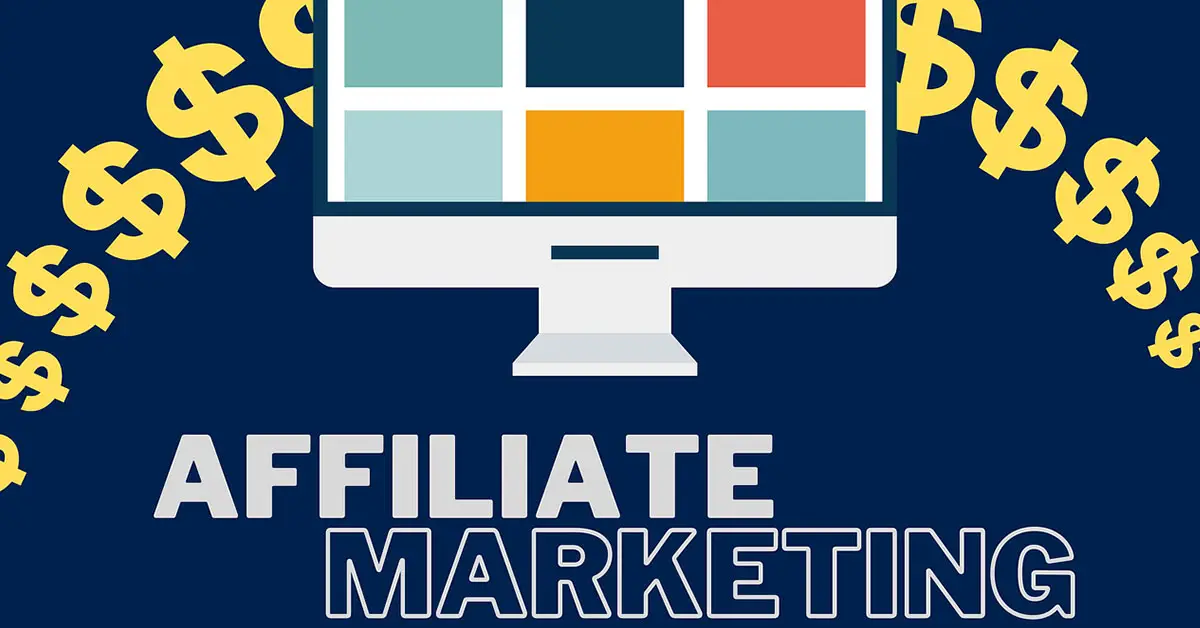With the rise of the digital realm, marketing online has become a vital component of ongoing business success. However, that doesn’t mean marketing opportunities are limited to generic website ads and tired cold emails. This is why fresh ways to connect with potential customers are an entrepreneur’s bread and butter.
Thanks to social media, the ascent of online personalities, and the proliferation of e-commerce sites, entrepreneurs now have access to a variety of powerful marketing tools online. In this ever-evolving landscape, affiliate marketing has emerged as a dependable tactic for increasing both exposure and profits.
But, if you aren’t familiar with affiliate marketing, you may not realize just how advantageous it can be for your business and brand. That’s why, in this article, we’ll be taking a look at the ins and outs of affiliate marketing, the variety of benefits it can offer for all parties involved, and exactly how smart entrepreneurs use it to make a great living.
What Is Affiliate Marketing?
In essence, affiliate marketing is a partnership between a merchant, an individual or business with something to sell, and an affiliate, an individual or business with access to and influence over a desirable customer base.
In return for clearly displaying ads, a call to action, and/or a link to buy the products on their social media or website, affiliates earn a commission on every unit they help to sell.
For example:
A blogger is an affiliate marketer for a candle company. They create a blog post about the company’s newest line of scents. In the conclusion of the post is a link to the candle company’s new range, along with a clear declaration that the influencer is part of an affiliate marketing scheme. Every reader who visits the company’s site through the affiliate link, and is compelled to make a purchase based on what the blogger wrote, will earn the blogger a percentage of the total price of the purchase.
Every affiliate marketing scheme or contract will have subtle differences, so it’s important to lay out clear terms when forming/entering an affiliate partnership. These will be based on your business’s overall goals, but we’ll get deeper into this in the How to Get Started With Affiliate Marketing section.
The Benefits of Affiliate Marketing For Entrepreneurs
Affiliate marketing is often considered a win-win situation for both merchants and affiliates. As entrepreneurs can be on both sides of this partnership, we’ll discuss the benefits of affiliate marketing from all sides.
The benefits of affiliate marketing for entrepreneurs include:
As Merchants
Outsourced Marketing - If you’re seeking business success, marketing is a significant part of the battle. Affiliate marketing allows your business to shift reliance from an in-house marketing team, and place it on affiliates who can passionately promote your products from a unique viewpoint.
Low Upfront Costs - You will only pay commission to affiliates when these partners generate sales or lucrative leads. This performance-based approach keeps initial costs at a minimum and ensures a high ROI. Affiliate marketing also reduces market research costs. Selecting an affiliate whose audience aligns with your target market reduces the need to purchase targeted advertising.
Extended Reach - Even if affiliates generate a low number of sales, the presence of your logos, slogans, product images, and general branding on their social media or website will still increase your visibility. If your chosen affiliate has an engaged audience, this will help them form a connection with your business and, with continued marketing efforts, can lead to future purchases.
Scalability - As your business grows, it’s easy to recruit new affiliates and continue existing partnerships with new product promotions. Affiliate marketing can also accommodate alterations in your brand, allowing you to tap into new niches and customer bases.
As Affiliates
No Product Development - As an affiliate that has a partnership with a large brand, you can develop a name and brand in an industry you’d like to break into in the future. Since you’re responsible only for marketing, you won’t need to take part in product development or market research.
Passive Income - Leading on from the above, affiliate marketing is a great passive income opportunity. You may need to do some initial work to write a review or some ad copy for the business you’re promoting, but once this is posted to your social media, commission is earned on a continuous and passive basis.
Additional Opportunities - An affiliate partnership with a business opens the door to many more hands-on opportunities. As the business you’re partnered with grows, they may make you their exclusive partner, up your commission, or offer you consultant or brand ambassador roles. Plus, unless it’s explicitly stated in your agreement, you can become an affiliate marketer for several businesses, increasing your credibility in your niche.
Flexibility and Control - As someone with access to a desirable consumer base, you only need to promote the products and businesses that align with your values and interests. This ensures your brand is not tarnished by the businesses you partner with, and you can ensure that your recommendations will resonate with your audience.
There’s no reason why you, as a business owner, cannot become an affiliate for another business simultaneously. You may choose to advertise for a complimentary business on your social media or site, while your partner business does the same for you through their channels. These B2B partnerships have their own benefits, and allow your company to make a profit while you make a personal income.
How to Get Started With Affiliate Marketing
Smart entrepreneurs make use of affiliate marketing in different ways. But, if you haven’t taken part in affiliate marketing before, the basic principles remain the same. Here is a step-by-step guide to how entrepreneurs can get started as both affiliates and merchants:
- Define Goals and Objectives
You should outline what you want to achieve by being part of an affiliate marketing program. Be sure to note how quickly you expect to achieve these goals and whether they are scalable. Though listing exact numbers for visitors and profits can help, returns from affiliate marketing can fluctuate rapidly. It’s better to have a general expectation for what you expect to achieve.
- Select A Niche
Depending on your existing brand, you’ll need to select a marketing niche. This will determine who your target audience is and the tone of voice you use to communicate with them. For example, if you are a lender or in the financial sector in any form, here is a great affiliate marketing program you should consider implementing.
- Create/Join Affiliate Program (for merchants)
Your affiliate program should outline your niche, the products you intend to market, your goals for marketing, ethical guidelines, exactly what you expect from affiliates, and what/when they can expect to earn. It’s a good idea to print this information in a comprehensive document that you can send to the affiliates you recruit.
- Choose an Affiliate Marketing Software (for merchants)
Affiliate marketing software will help you keep track of your partners, monitor the traffic coming from their affiliate links, optimize your strategies, and send them accurate and on-time payments for their work. Here is a list of useful and widely used affiliate marketing software options.
- Develop Affiliate Materials (for merchants)
To better control how affiliates market your products or services, it’s best to create some materials that they can quickly upload to their social media or site. These might include banners, infographics, text posts, or product videos. The most important affiliate marketing materials are affiliate links, which can be created using your chosen affiliate marketing software.
- Recruit Affiliates (for merchants)
Now it’s time to recruit the best affiliates for your brand and goals. You can often use your chosen affiliate marketing software to search for influencers who align with your niche and are looking for promotion opportunities. Or, you can take a more personable approach and reach out to influencers through their social media or business emails. Though this may not lead to partnerships every time, it can offer your chosen affiliates more control and lead to a stronger partnership.
- Implement SEO
You’ll need to drive traffic to your marketing efforts. Thankfully, if you’re familiar with SEO, this doesn’t require any new or unorthodox digital marketing techniques. Ensure your content is valuable, informative, and readable, taking advantage of keywords in any text, images, or audio. For merchants, this can also help to draw attention to your affiliate marketing program, meaning influencers may even reach out to you first.
- Monitor and Optimize Performance
Keep an eye on your site traffic, the percentage of visitors who follow through on calls-to-action, and the amount of commission paid. Check in regularly with your affiliate partner to ensure everything is going as planned and make small revisions to the way you work. Though affiliate links can take time to produce results, it may be a good idea to schedule comprehensive performance reviews now and again.
- Build and Maintain Partnerships
By offering guidance, and fostering effective and frequent communication, you can ensure that your affiliate marketing program is consistently improving. Mutual trust, transparency, and shared objectives are important aspects of a thriving affiliate marketing scheme from which everyone benefits.
- Scale and Expand
As your partnership continues, you can consider expanding into new niches, adding new marketing techniques such as how-to posts and exclusive product launches, and recruiting new affiliates to further your reach. As mentioned above, becoming/recruiting brand ambassadors and forming exclusive partnerships are great ways to improve your affiliate marketing.
In Conclusion…
Affiliate marketing has emerged as a dynamic, flexible, and lucrative strategy for entrepreneurs. Whether you own a business or you are your business, affiliate marketing can boost your brand and profits with only a small amount of initial work.
Affiliate marketing, at its core, involves partnerships between businesses or individuals who can reach and influence a desired audience. Affiliates earn commission by promoting products through various online channels, making it a win-win arrangement.
As merchants, entrepreneurs can outsource marketing efforts, reduce upfront costs, extend their reach, and adapt to their business growth. Affiliates enjoy passive income, brand development, and numerous opportunities, including consultancy and brand ambassador roles.
Overall, affiliate marketing is a versatile and rewarding strategy for entrepreneurs. It creates beneficial relationships between brands and personalities, strengthens consumer loyalty, and drives measurable results, allowing you to thrive in the digital realm and make a great living.
Sources and Resources
- https://neilpatel.com/what-is-affiliate-marketing/
- https://www.investopedia.com/terms/a/affiliate-marketing.asp
- https://www.shopify.com/uk/blog/affiliate-marketing/
- https://www.bigcommerce.co.uk/articles/ecommerce/affiliate-marketing/
- https://www.linkedin.com/pulse/9-benefits-affiliate-marketing-business-md-ali/
- https://captiv8.io/blog/2023/09/08/the-benefits-of-adding-an-affiliate-program-to-your-influencer-marketing-strategy/
- https://www.awin.com/us/how-to-use-awin/20-reasons-to-use-affiliate-marketing
- https://www.upgrad.com/blog/reasons-to-become-an-affiliate-marketer/
- https://www.youtube.com/watch?v=ZjhZ7vCl3HQ
- https://www.hostinger.co.uk/tutorials/how-to-start-affiliate-marketing
- https://zapier.com/blog/affiliate-marketing-for-small-business/
- https://influencermarketinghub.com/affiliate-marketing-software-platforms/





















Add comment